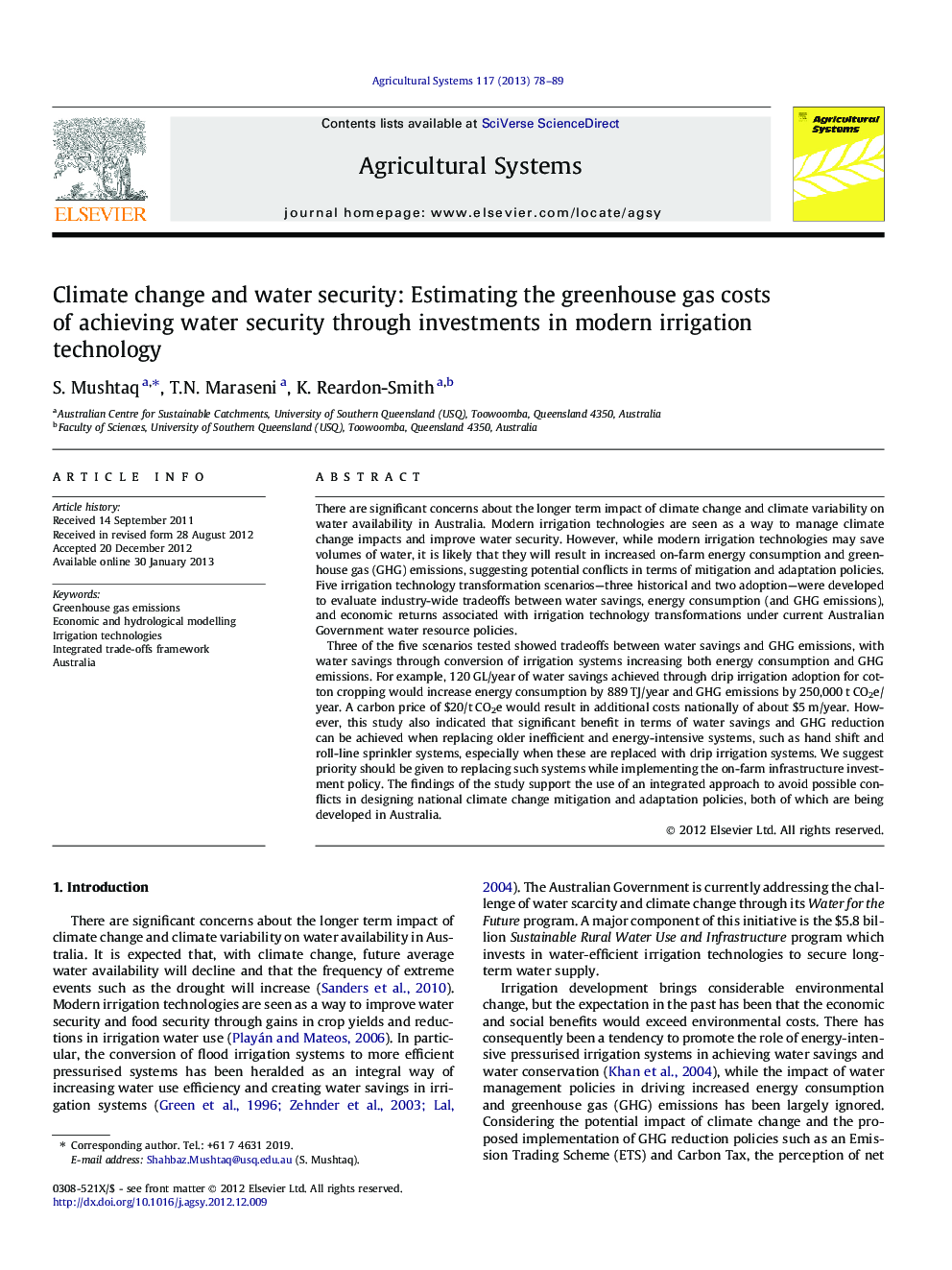| کد مقاله | کد نشریه | سال انتشار | مقاله انگلیسی | نسخه تمام متن |
|---|---|---|---|---|
| 4491363 | 1623253 | 2013 | 12 صفحه PDF | دانلود رایگان |

There are significant concerns about the longer term impact of climate change and climate variability on water availability in Australia. Modern irrigation technologies are seen as a way to manage climate change impacts and improve water security. However, while modern irrigation technologies may save volumes of water, it is likely that they will result in increased on-farm energy consumption and greenhouse gas (GHG) emissions, suggesting potential conflicts in terms of mitigation and adaptation policies. Five irrigation technology transformation scenarios—three historical and two adoption—were developed to evaluate industry-wide tradeoffs between water savings, energy consumption (and GHG emissions), and economic returns associated with irrigation technology transformations under current Australian Government water resource policies.Three of the five scenarios tested showed tradeoffs between water savings and GHG emissions, with water savings through conversion of irrigation systems increasing both energy consumption and GHG emissions. For example, 120 GL/year of water savings achieved through drip irrigation adoption for cotton cropping would increase energy consumption by 889 TJ/year and GHG emissions by 250,000 t CO2e/year. A carbon price of $20/t CO2e would result in additional costs nationally of about $5 m/year. However, this study also indicated that significant benefit in terms of water savings and GHG reduction can be achieved when replacing older inefficient and energy-intensive systems, such as hand shift and roll-line sprinkler systems, especially when these are replaced with drip irrigation systems. We suggest priority should be given to replacing such systems while implementing the on-farm infrastructure investment policy. The findings of the study support the use of an integrated approach to avoid possible conflicts in designing national climate change mitigation and adaptation policies, both of which are being developed in Australia.
► Integrated trade-off analysis was applied at crop- and system-level.
► Trade-offs were apparent in terms of energy-related emissions.
► Adoption was economically viable at a range of carbon prices.
► Win–win situation can be achieved if investing in conversion from older sprinkler systems.
► Integrated policy development is required to avoid policy conflicts.
Journal: Agricultural Systems - Volume 117, May 2013, Pages 78–89